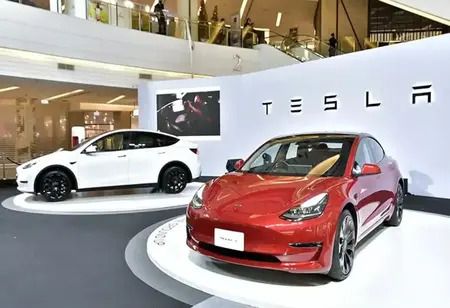
Tesla to Expand its Robotaxi Service to the San Francisco Bay Area

 Tesla to expand its robotaxi service to the San Francisco Bay Area in a month or two, depending on regulatory approvals, says CEO Elon Musk. Last month, Tesla initiated a trial of its long-awaited service in a designated area of Austin, Texas, using approximately a dozen vehicles, a chosen group of passengers, and various limitations, including a safety monitor seated in the front passenger seat.
Tesla to expand its robotaxi service to the San Francisco Bay Area in a month or two, depending on regulatory approvals, says CEO Elon Musk. Last month, Tesla initiated a trial of its long-awaited service in a designated area of Austin, Texas, using approximately a dozen vehicles, a chosen group of passengers, and various limitations, including a safety monitor seated in the front passenger seat.
Musk announced on his social media platform X that Tesla would broaden the service to "a larger area in Austin this weekend," in response to a user's inquiry regarding the lack of updates on expansion.
However, Musk did not provide details about the specific location or the extent of the area being expanded.
In reply to another user, Tesla Owners Silicon Valley, who asked about a potential expansion to the Bay Area, Musk stated, "Waiting on regulatory approvals, but probably in a month or two."
The successful rollout of robotaxis is vital for Tesla's future, as sales of its older range of electric vehicles have declined due to increasing competition and negative reactions to Musk's adoption of far-right political views.
A significant portion of the company's trillion-dollar valuation depends on Musk's gamble with robotaxis and humanoid robots powered by artificial intelligence.
Bringing autonomous vehicles to market has proven more challenging than expected due to high expenses, stringent regulations, and investigations that have forced several companies, including General Motors' Cruise unit, to cease operations.
Also Read: Tim Cook Nears Retirement, Who Will Take Over Apple's Throne?
Before Tesla's recent trial, Alphabet's Waymo was the sole company operating driverless robotaxis that charged fares to riders.
Waymo has been cautiously expanding its service with around 1,500 vehicles for several years and is currently available in San Francisco and other Bay Area cities, as well as Los Angeles, Phoenix, Austin, and Atlanta.
Musk has claimed that Tesla will quickly expand the service to additional U.S. cities.
While Tesla faced minimal regulatory scrutiny in Texas, California imposes strict regulations on where and how companies can deploy autonomous vehicles and mandates testing data for permits.
Also Read: How Tensions Grew Worse between Elon Musk and Donald Trump
In California, Tesla would require a variety of permits from the state's Department of Motor Vehicles (DMV) and the California Public Utilities Commission (CPUC) to run a fully autonomous robotaxi service that charges customers.